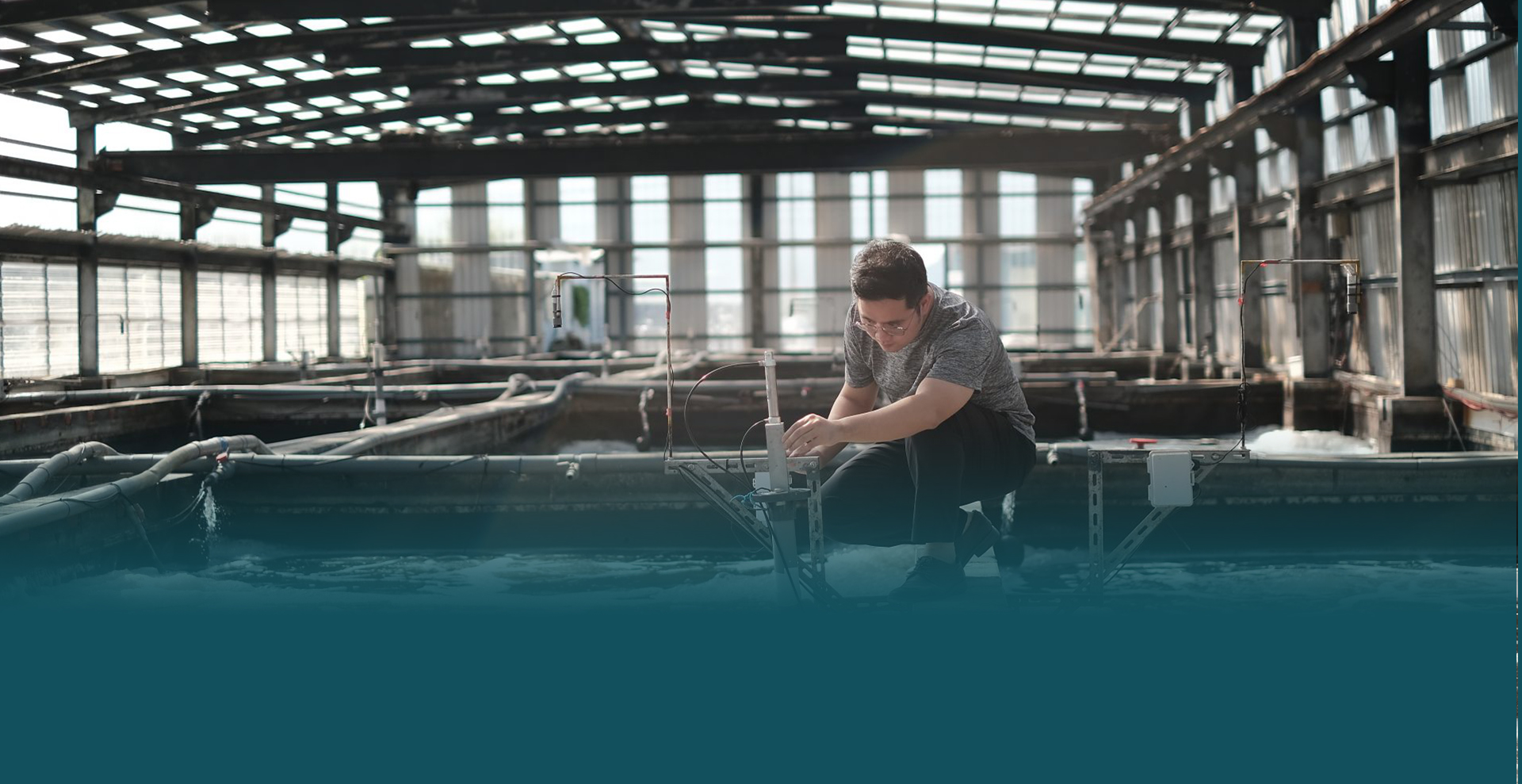9 Tech companies reward 4.35 millions to support agriculture, forestry & fisheries startups in Taiwan.
16 Sep, 2023
Awards
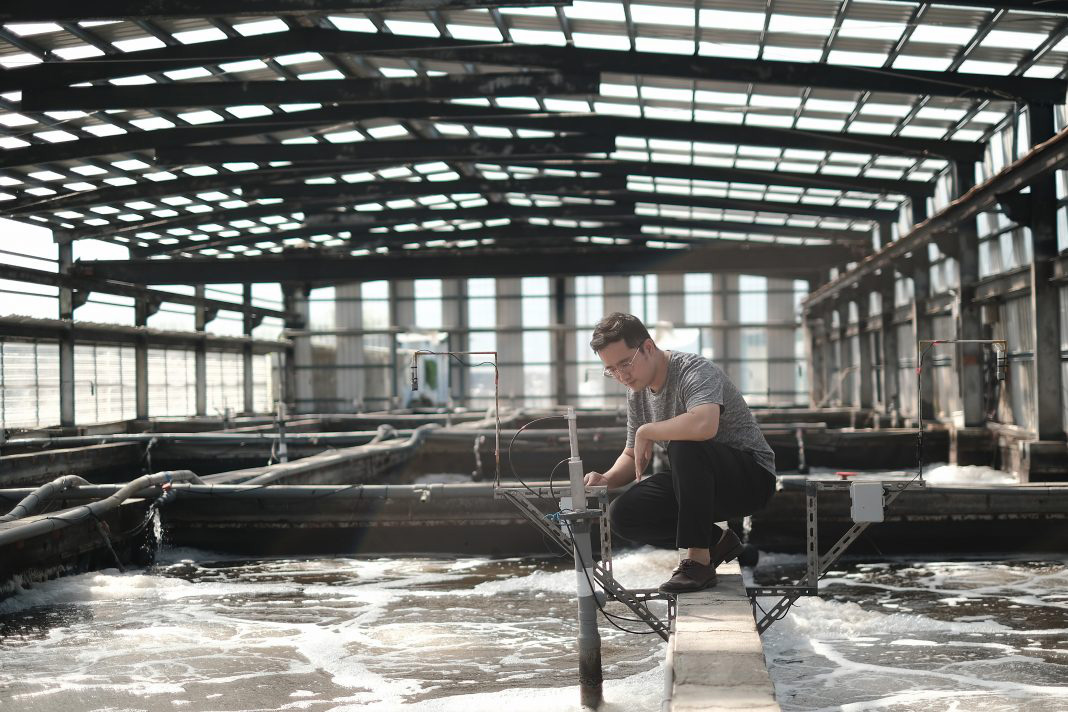
Surprisingly, about three or four decades ago, Taiwan was once known as the shrimp farming center(hub/kingdom), with an annual production of nearing 100 thousand tons, taking up one fifth of the global yields in shrimp farming. Exporting a large amount of its shrimp resource, Taiwan also stood out with top notch technology for its rearing pond. Nevertheless, due to a severe shrimp plague wreaking havoc in the farming sectors, the yearly production dropped to a mere 20 thousand tons, compared to current demand for shrimps across the world. The domestic demands are not met, nor the appetite for shrimps. The status quo seems dire.
The tides might have turned. Thanks to some well educated young men from Toucheng, Yilan, ID WATER Company Limited was founded to confront such predicament. ID WATER aims to create a sustainable future of unmanned shrimp farming, with exclusive technology such as water quality monitoring system, automatic feeding equipment, and artificial intelligence
management. Environmental values were taken into account. With technological soft power, they ensure non-poisoned and additive-free shrimps and enable a greener prospect that benefits on all fronts, ushering a whole new era for a tech farming kingdom. In addition, the trending idea in recent years, “shrimp and electricity symbiosis,” was also implemented by ID WATER. They provide “one-stop aquaculture” service, meaning they can generate power with the pond while breeding shrimps; therefore, the tech agriculture revolution would then be plausible.
The tides might have turned. Thanks to some well educated young men from Toucheng, Yilan, ID WATER Company Limited was founded to confront such predicament. ID WATER aims to create a sustainable future of unmanned shrimp farming, with exclusive technology such as water quality monitoring system, automatic feeding equipment, and artificial intelligence
management. Environmental values were taken into account. With technological soft power, they ensure non-poisoned and additive-free shrimps and enable a greener prospect that benefits on all fronts, ushering a whole new era for a tech farming kingdom. In addition, the trending idea in recent years, “shrimp and electricity symbiosis,” was also implemented by ID WATER. They provide “one-stop aquaculture” service, meaning they can generate power with the pond while breeding shrimps; therefore, the tech agriculture revolution would then be plausible.
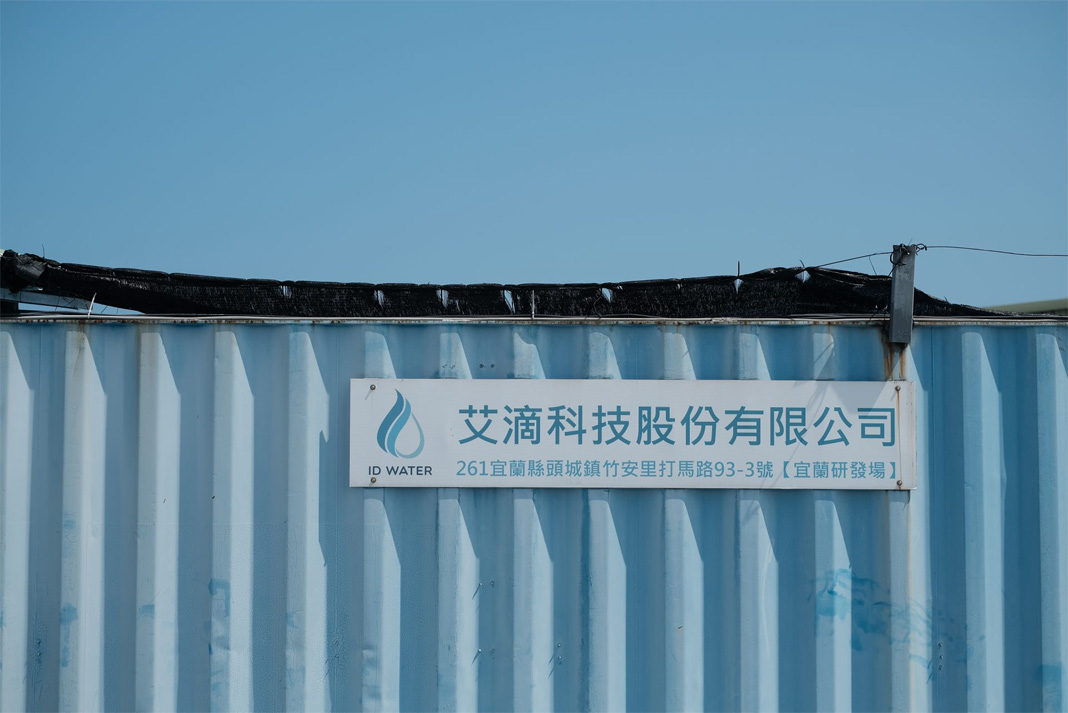
After years of honing their craft, ID WATER has seen the fruits of their own farming techniques in the R & D factory based in Yilan.
Unmanned Farming Tech Facilitate Agricultural Transformation
“Our ultimate goal is to achieve unmanned farming with the help of technology,” the founder of ID WATER, Yu Wan-Chou said. Shrimp farming sector has long been faced with various adversities. Technology, understandably, is the key to remedy its stagnation over the years, and the path to sustainability.
One of the biggest challenges for shrimp aquaculture businesses in Taiwan is the ever-changing climate. Since most of the pond rearing sectors take the traditional outdoor approach, weather, temperature, and water quality are decisive factors attributing to the maintenance of shrimp farming. Thus, the shrimps risk exposure to illness due to, say, bird fecal matter, potentially ruining the lives in the ponds. As the excrement accumulates throughout the years, the bacteria are to hinder the production year by year. Such problems are often irreversible, which leaves the traditional shrimp farmers no choice but to jettison the pond altogether just for building another.
Besides natural and environmental challenges, the shrimp farmers are also faced with pressing issues like aging laborers, shortage of workers, and high cost of production, restraining their development and making them incapable of competing with foregin sectors.
One of the biggest challenges for shrimp aquaculture businesses in Taiwan is the ever-changing climate. Since most of the pond rearing sectors take the traditional outdoor approach, weather, temperature, and water quality are decisive factors attributing to the maintenance of shrimp farming. Thus, the shrimps risk exposure to illness due to, say, bird fecal matter, potentially ruining the lives in the ponds. As the excrement accumulates throughout the years, the bacteria are to hinder the production year by year. Such problems are often irreversible, which leaves the traditional shrimp farmers no choice but to jettison the pond altogether just for building another.
Besides natural and environmental challenges, the shrimp farmers are also faced with pressing issues like aging laborers, shortage of workers, and high cost of production, restraining their development and making them incapable of competing with foregin sectors.
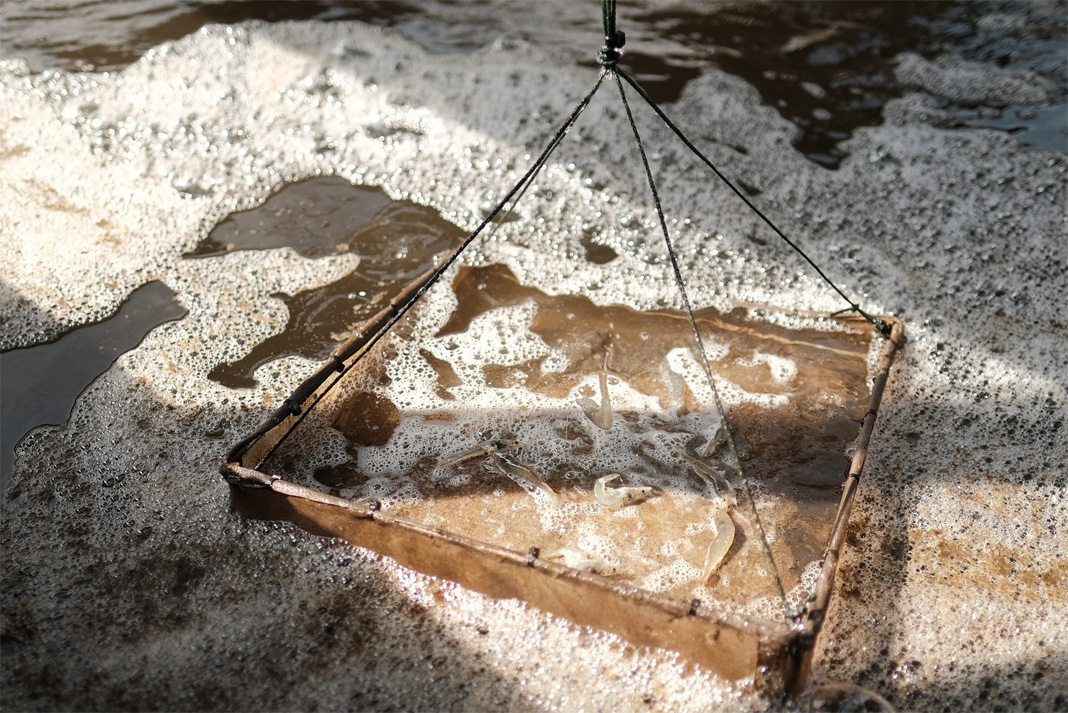
ID WATER Reared Whiteleg Shrimps
Being aware of such, Yu Wan-Chou stated, “With the techniques they used to apply, the shrimp rearing experience played a significant role in the business. However, what we are trying to achieve is to think outside of the box, and revamp the industry through technologization and standardization. Automation is the solution.” Thus, indoor rearing approach is introduced in a bid to manage environmental factors effectively without the uncertainties of the weather. Then, from his own study results and academic backgrounds, the company capitalizes on the water quality monitoring system to quantify what used to be passed on through words of the experienced, translating the states of pond environment into numerical data and making the process manageable. By deconstructing the traditional ways of shrimp rearing, those approaches help set up a path for a replicable business model. Through technology, it is not only much easier to put the illness aspect under control, but the shrimp farmers would also no longer be facing the difficulties prolonging the art.In all, with automated equipment such as self-developed automatic feeding equipment, automatic blowdown system, and image recognition, cutting down the manpower at the production line would gradually realize an unmanned future, which is going to potentially revolutionize the aquaculture industry. In regards to automation and the transformation, Yu Wan-Chou shared, “When there is sufficient amount of data, we may make our decisions with artificial intelligence. We would then be the first farming company ever to strategize with AI, which is likely to be a reality by 2024.”

The founder of ID WATER himself examines the farming equipment to ensure stable quality.
The obstacles along the way did not quench his passion for the business. Yu Wan-Chou takes on the challenges with the philosophy of business agility, continuing to optimize his craft. It is through such a mentality in which he truly realized that every is connected within the ecosystems. When asked about the key to shrimp farming, he answered, “As a matter of fact, all you need to focus on is managing the water quality. But there are at least over 40 variable measurements needed to take into account in the water aspect alone. It is rather challenging to put every factor under control where almost everything is relevant.” The shrimp farming business, according to Yu, requires a comprehensive approach as with building a simulated ecosystem. Every factor is taken into consideration, and so is every interaction between every factor to strike a balance. To even the effects of variable factors is to master the desired outcome as effectively as possible.
Shrimp and Electricity Symbiosis Model, ID Water Promotes One-stop Aquaculture Service.
“With the global demands for white shrimps reaching nearly 5 million tons per year, approximately one trillion market value, white shrimps qualify more when it comes to world-wide appeal, compared to the species such as groupers, snubnose pompanos, and white pomfrets which are more predominant in the asian markets.” said the founder of ID WATER, Yu Wan-Chou. Having both the expertise and the vision, the owner of the company proceeded to engage with the recent issues like energy transition. Derived from the concept of fishery and electricity symbiosis, he developed a similar approach shrimp and electricity symbiosis.
“The white shrimp farming techniques were easily affected by the geography. The rearing ponds had to be built at specific seasides. That’s why we wanted to revolutionize the business with indoor farming and high tech. By making the business model much more applicable, we can then collaborate with solar energy companies. Once the appropriate site is decided, we will be able to commence the project. What we do include things like farming planning, aquafarm design, rearing shrimps, and selling shrimps, which explains what one-stop aquaculture service is about.” stated Yu. The shrimp farms spread across the country from Yilan to Kaohsiung. This means possible long term local production and consumption, and even higher probability of taking the exclusive technology to a global scale, making Taiwan the next kingdom for sustainable aquaculture.
Shrimp and Electricity Symbiosis Model, ID Water Promotes One-stop Aquaculture Service.
“With the global demands for white shrimps reaching nearly 5 million tons per year, approximately one trillion market value, white shrimps qualify more when it comes to world-wide appeal, compared to the species such as groupers, snubnose pompanos, and white pomfrets which are more predominant in the asian markets.” said the founder of ID WATER, Yu Wan-Chou. Having both the expertise and the vision, the owner of the company proceeded to engage with the recent issues like energy transition. Derived from the concept of fishery and electricity symbiosis, he developed a similar approach shrimp and electricity symbiosis.
“The white shrimp farming techniques were easily affected by the geography. The rearing ponds had to be built at specific seasides. That’s why we wanted to revolutionize the business with indoor farming and high tech. By making the business model much more applicable, we can then collaborate with solar energy companies. Once the appropriate site is decided, we will be able to commence the project. What we do include things like farming planning, aquafarm design, rearing shrimps, and selling shrimps, which explains what one-stop aquaculture service is about.” stated Yu. The shrimp farms spread across the country from Yilan to Kaohsiung. This means possible long term local production and consumption, and even higher probability of taking the exclusive technology to a global scale, making Taiwan the next kingdom for sustainable aquaculture.
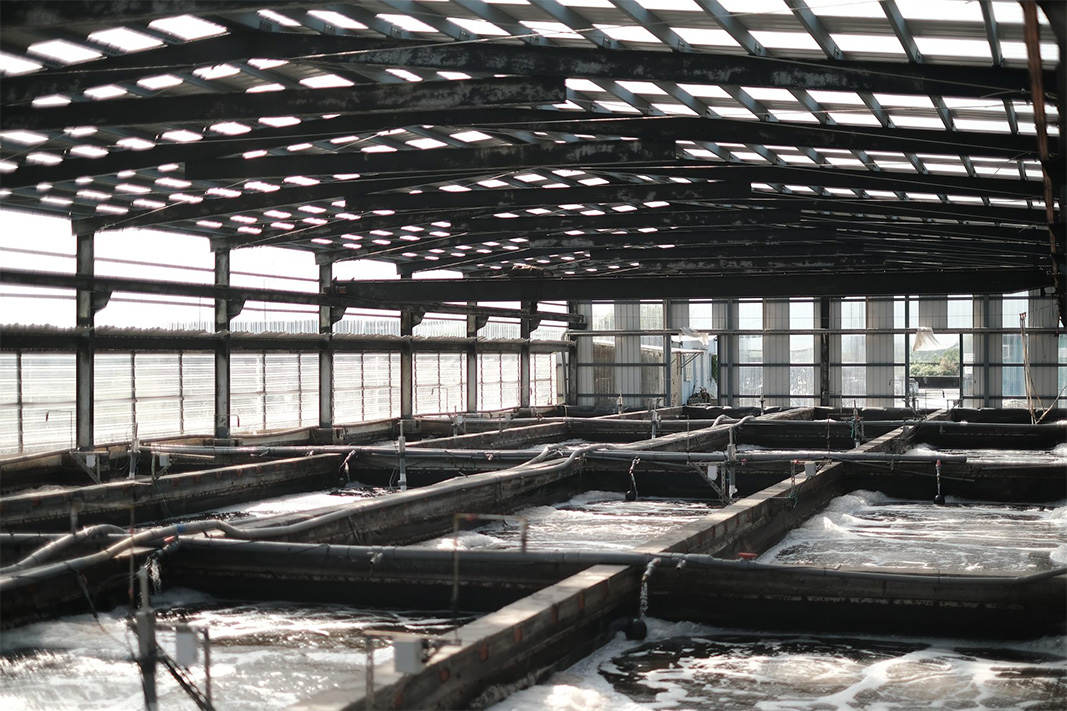
When geography is no longer an issue for shrimp farming, an infinite amount of potential lies ahead.
Mangrove Preservation Starts With Shrimp Farming
“As I mentioned earlier, outdoor farming is subject to contaminating substances. When it gets to a point where the virus level is too high in the ponds, shrimp farmers tend to cut down the mangroves to build new rearing ponds. As 90 percent of the shrimp farmers adopt the outdoor approach, which requires mangrove deforestation every 3 to 5 years, this poses a great threat to the environment. The 700 square-meter ponds in Yilan, for instance, are marred by such, leaving 400 square meters gone to waste.”
Human species are doomed for backlash due to their careless actions, especially in the field of food production and the source involved. It has now come clear that the tasteful shrimps are served at the cost of the mangrove forests. Yu Wan-Chou shared, “Mangrove forests have twice or thrice the ability of carbon fixation than tropical forests or boreal forests. A fire could ruin a decade long carbon fixation. Little do people know, agriculture actually takes up 27 percent of the global carbon emission. Among the percentage, 70 percent are caused by deforestation.” On top of that, cutting down mangrove forests also contributes to the shortage of resources in the ocean. Since mangroves lie on the borders between lands and seas. They not only produce abundant nutrients for the creatures, but also help breed a considerable amount of fish fry. Unrestrained deforestation leaves fish no habitats but distinction.
Human species are doomed for backlash due to their careless actions, especially in the field of food production and the source involved. It has now come clear that the tasteful shrimps are served at the cost of the mangrove forests. Yu Wan-Chou shared, “Mangrove forests have twice or thrice the ability of carbon fixation than tropical forests or boreal forests. A fire could ruin a decade long carbon fixation. Little do people know, agriculture actually takes up 27 percent of the global carbon emission. Among the percentage, 70 percent are caused by deforestation.” On top of that, cutting down mangrove forests also contributes to the shortage of resources in the ocean. Since mangroves lie on the borders between lands and seas. They not only produce abundant nutrients for the creatures, but also help breed a considerable amount of fish fry. Unrestrained deforestation leaves fish no habitats but distinction.
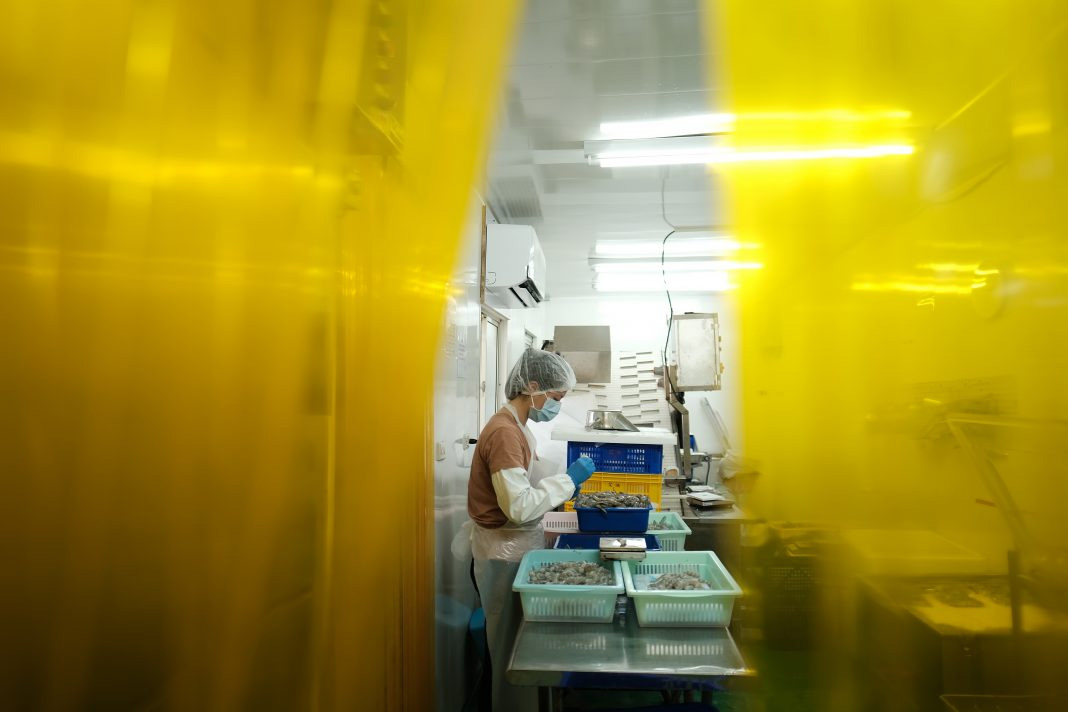
ID WATER Tech reforms the abandoned ponds to alleviate the damage imposed on the environments from aquaculture.
The call for agricultural transition stems from increasing unit production, tackling manpower shortage, and deep environmental awareness. Actions need to be taken sooner rather than later. To that, Yu Wan-Chou remarked, laughingly, “As long as ID WATER can help decrease one percent of the 27 percent carbon emission, with greener technology, I’d be satisfied.”
The call for agricultural transition stems from increasing unit production, tackling manpower shortage, and deep environmental awareness. Actions need to be taken sooner rather than later. To that, Yu Wan-Chou remarked, laughingly, “As long as ID WATER can help decrease one percent of the 27 percent carbon emission, with greener technology, I’d be satisfied.”
High Tech Island, Taiwan Farming Back In The Global Eyes
ID WATER continues to optimize AIoT (The Artificial Intelligence of Things) technology applied in aquaculture and expand its business by collaborating with solar energy companies, making it the only company in the world to do so. Non-poisoned and additive-free white shrimps produced by ID WATER can be purchased at places like TANHOU Food(天和鮮物), Cotton Field Organic (棉花田生機園地), and PX Mart on a consumer level, gradually replacing the heavy reliance on export.
To sum up, for Yu Wan-Chou, who has attempted to start a business twice, “How to be different from others?” has always been what he strives for over the years. Now, he has technology in his repertoire to not only reform the business to preserve the environment, but also constantly revamp the society for the better, in the hopes of attaining the sustainable future of human and nature co-existence.lands and seas. They not only produce abundant nutrients for the creatures, but also help breed a considerable amount of fish fry. Unrestrained deforestation leaves fish no habitats but distinction.
To sum up, for Yu Wan-Chou, who has attempted to start a business twice, “How to be different from others?” has always been what he strives for over the years. Now, he has technology in his repertoire to not only reform the business to preserve the environment, but also constantly revamp the society for the better, in the hopes of attaining the sustainable future of human and nature co-existence.lands and seas. They not only produce abundant nutrients for the creatures, but also help breed a considerable amount of fish fry. Unrestrained deforestation leaves fish no habitats but distinction.
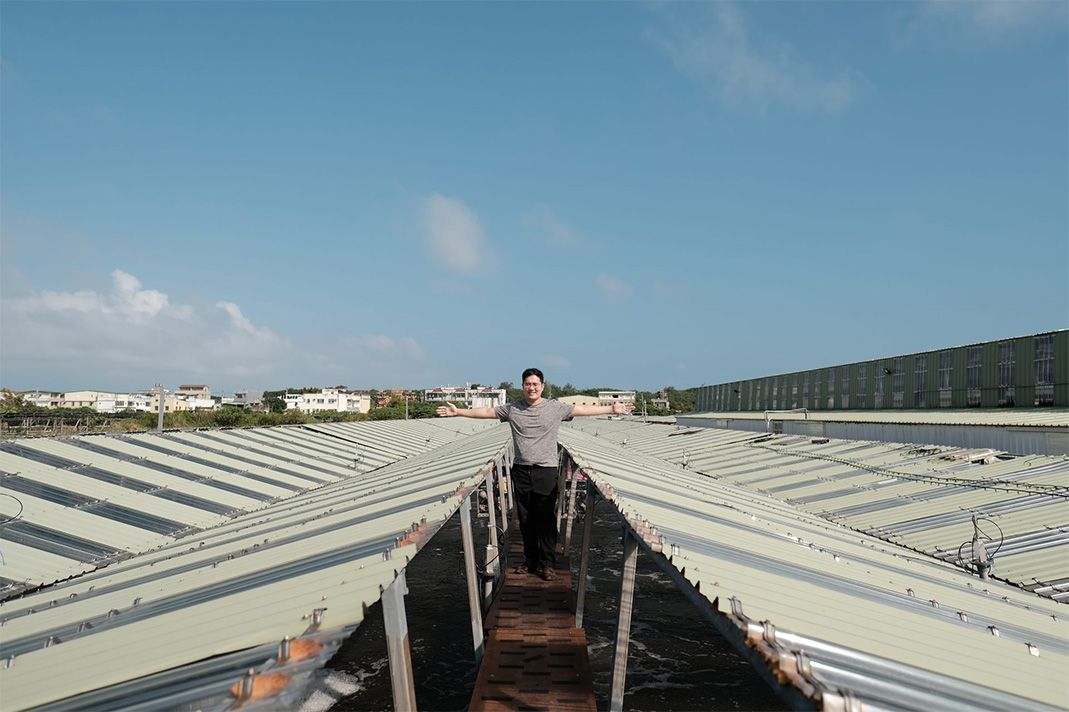
Founder of ID WATER Co., Ltd. Yu Wan-Chou
Article Source : https://canopi.tw/circular-economy/idwater/
Article Source : https://canopi.tw/circular-economy/idwater/

